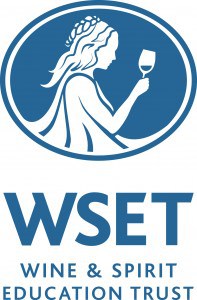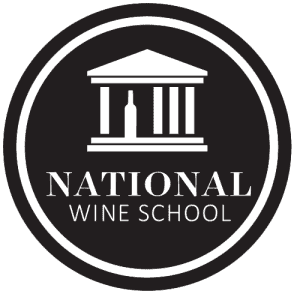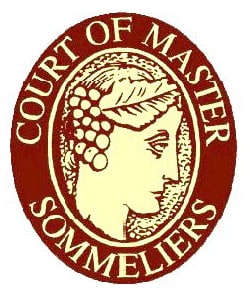Understanding Wine Certifications
In the ever-evolving world of sommelier certifications, a labyrinth of programs and educational institutions awaits those seeking mastery in wine. With each certification agency boasting its own lexicon and examination standards, deciphering the true essence of these credentials can be a formidable task.
However, amidst this complexity, a structured framework emerges—a hierarchical ladder of achievement consisting of five levels that serve as a guidepost for individuals navigating the realm of sommelier education.
Cutting Through The Hype
In 2012, a pivotal breakthrough occurred as wine industry experts introduced a standardized vocabulary, simplifying the understanding of various programs. By adopting a straightforward L1-L5 labeling system, the once-elusive distinctions between certification agencies such as the Court of Master Sommeliers, the North American Sommelier Association, and others faded into insignificance.
Trademarks and logos aside, all sommelier certifications hold equal professional weight, akin to the recognition accorded to a Bachelor of Arts degree from an accredited institution.
Wine Schools Matters
While sommelier certification is undeniably crucial, the choice of the wine school itself plays an equally vital role in shaping one’s path within the wine industry. Just as attending an esteemed institution like Harvard can impart prestige, selecting a wine school can significantly influence an individual’s career trajectory as a sommelier.
To aid aspiring oenophiles in making informed decisions, we have curated a list of recommended wine schools across the United States, providing a compass to navigate their educational journey confidently.
Online Sommelier Certification
As online education gains prominence, several agencies offer sommelier certification programs online. While most online programs are available at the L1 level, some technologically advanced platforms have expanded their offerings to the Advanced Sommelier (L4) level.
However, it is essential to note that no online programs currently provide the Master Sommelier (L5) certification or its equivalent. We maintain an up-to-date list of the best classes for those interested in pursuing online sommelier education.
Sommelier Certification Levels
Now let’s delve into the five levels of sommelier certifications, which have gained widespread acceptance and adoption by most certification agencies:
Level One (L1) Certification
These basic credentials, or level 1 sommelier certification, are typically taken online. It is an entry point for individuals looking to embark on their sommelier journey.
Level Two (L2) Certification
Level 2 certification typically includes knowledge of varietals and blind tasting as standard components of the program. It builds upon the foundational concepts of wine.
Level Three (L3) Certification
At this stage, major vinicultural regions, terroir, and winemaking styles become the program’s core components. Level 3 certification often incorporates blind tastings and may have requirements related to restaurant service. It is at this level that students usually earn their sommelier pin.
Level Four (L4) Certification.
Referred to as the Advanced Sommelier program, level 4 is the aspiration of many professionals in the field. Achieving a Level Four certificate generally requires a substantial investment of at least two years.
Level Five (L5) Certification.
The pinnacle of wine certifications, Level Five, is the most challenging to acquire. Consequently, only the most esteemed programs offer L5 certification. At this level, you will encounter comprehensive marketing and trademarked terms such as “Master Sommelier Certification” and “Master in Wine.” It’s important to note that these terms are not standalone credentials but exclusive designations for L5 programs.
Top Wine Certification Agencies
In the United States, several major certification programs hold significant influence and are highly recommended for those seeking a career in the wine industry. Here are some of the prominent agencies we evaluate based on factors such as accreditation, industry acceptance, educational standards, and transparency:

Wine & Spirit Education Trust (WSET)
Widely franchised and favored, WSET provides a comprehensive wine certification curriculum. Their offerings range from the introductory Level 1 Award in Wines to the esteemed Level 4 Diploma in Wines and Spirits. Informally part of the WSET hierarchy, this prestigious institution offers the coveted Master of Wine certification, the pinnacle of achievement in the field.

National Wine School
The National Wine School has rapidly become one of the top sommelier certification programs in the United States. Its rise to prominence since its establishment in 2012 is attributed to two key factors: strategic distribution through colleges and a popular online format. The agency’s partnerships with colleges have made its program widely accessible nationwide. Simultaneously, its online platform has gained favor among restaurants and hotels, offering flexibility and convenience for busy professionals.

Court of Master Sommeliers
The illustrious Court of Master Sommeliers is widely renowned but has recently faced significant controversy. We provide an in-depth review of the pros and cons of their certification exams, including coverage of the highly publicized accusations of corruption, racism, and sexual violence that have marred the institution’s reputation.
More Sommelier Credential Agencies
Other notable certification agencies in the United States include the Society of Wine Educators, the North American Sommelier Association, the International Sommelier Guild, and the International Wine Guild. We offer comprehensive reviews of each agency, ensuring aspiring sommeliers can access valuable insights.


